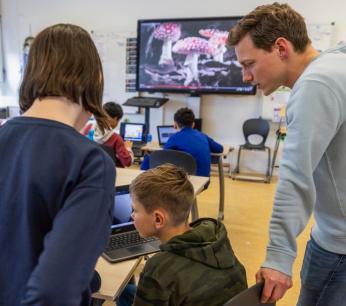'Appropriate education just doesn't work in practice'
MPs Peter Kwint (SP) and Rudmer Heerema (VVD) often disagree. But political opposites find each other in their concerns about appropriate education. A double interview with the Education Magazine - to be published next week - about the teacher shortage, the increasing inequality of opportunities and Hague pragmatism.
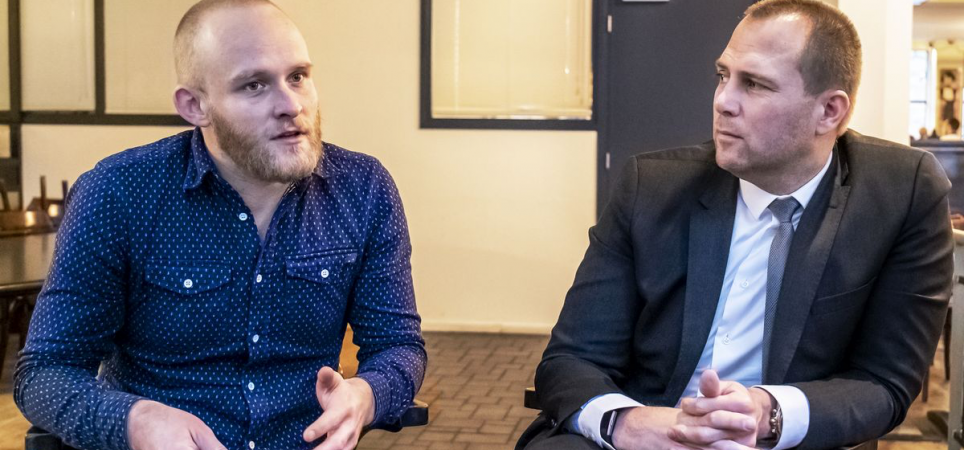
Image: Angeliek de Jonge
Headhunters who buy away and offer teachers at a school that is up: it irritates political parties from left to right. But what to do? Well this: send Minister of Education Slob to school boards to see how they can keep the use of these types of desks to a minimum. At least, that was the spirit of a motion that opposition parties SP and GroenLinks almost got the full House of Representatives behind a few months ago. To the delight of SP MP Peter Kwint, who tweeted: 'Great. Numerous motions and questions dedicated to it, passed today. Stop the unnecessary leakage of education money to employment agencies! '
Kwint explains: “If you are a teacher and you happen to be on LinkedIn, you will receive e-mails every week from companies such as Monday with: Would you not want a lease car and more salary? I wish that teacher wholeheartedly, but preferably all teachers. Too many substitute workers in a team has a major impact on the work of the other teachers. It's a waste of money and bad for the workload. ”
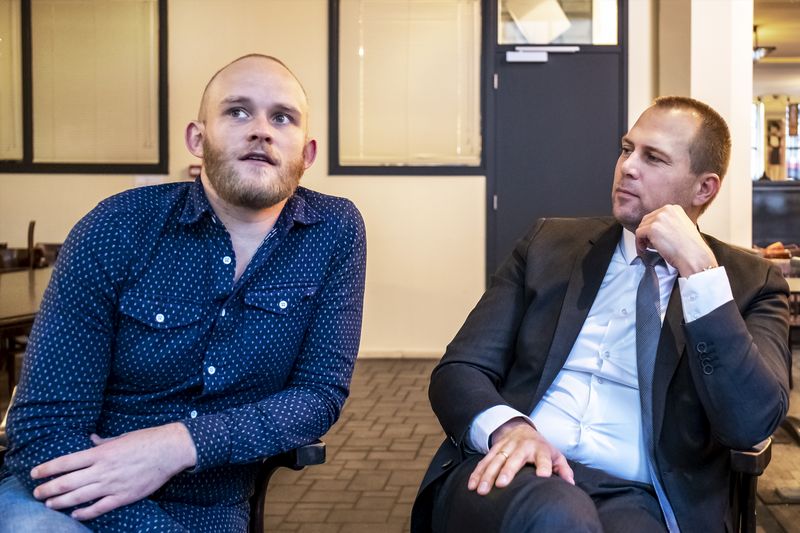
Image: Angeliek de Jonge
Kwint: "Too many substitutes in a team have a major impact on the work of the other teachers. It is a waste of money and bad for the workload."
It is logical that the VVD government party supported the motion, says Member of Parliament Rudmer Heerema. "Of course. I support the idea that schools make agreements among themselves to let employment agencies earn as little as possible from the teacher shortage. ”
But wait a minute. Earlier last year there was also a motion from the SP on the same subject. That text was just a bit more robust: Slob would have to meet with school boards to reach a maximum for the hiring of employment agencies. That motion was not made, partly thanks to a vote against by the 33 VVD party members.
Heerema: “With such a maximum you anticipate the discussion about the lump sum that we are still conducting in the House of Representatives. We will see whether the lump sum is used as effectively as possible. I have serious doubts about that. Especially because I see that schools in comparable neighborhoods with comparable pupils and teachers with the same money show very different results. ”
Kwint: "I think you can also have that lump sum discussion perfectly if you do something in advance about the role of employment agencies."
And you wanted to do something about that, but for that you had to file a motion that…
Kwint: “… is a lot weaker than the first, that's right. The only reason to submit that new motion like this was because the other one did not make it. ”
Political pragmatism?
Kwint: “Well, something is better than nothing. I wanted a ruling in the House to finally be made with which the minister could go to schools to say: there is a widely shared wish here not to let this get out of hand even further. ”
Errors
SP'er Kwint and VVD'er Heerema both did not have to think long about the request for a double interview. Kwint even emailed back within three minutes. They are political opponents, but also opposites with similarities. Both relatively young (Heerema is the older of the two and will be 41 the day after tomorrow) and fanatical athletes. With primary and secondary education in their portfolio, they are often in the picture for major themes such as the teacher shortage.
The spending of tuition money has become a hot topic, together with the teacher shortage. Many parties are frustrated that investments in recent years have resulted in a misty accountability: then State Secretary Dekker, who confessed that he did not know how school boards spent the money, the money had simply gone into the lump sum. Unsustainable, says Kwint. "There is no other sector in the Netherlands where you put so much money into it and are satisfied with the answer: sorry, no idea what it was spent on, that is freedom of spending."
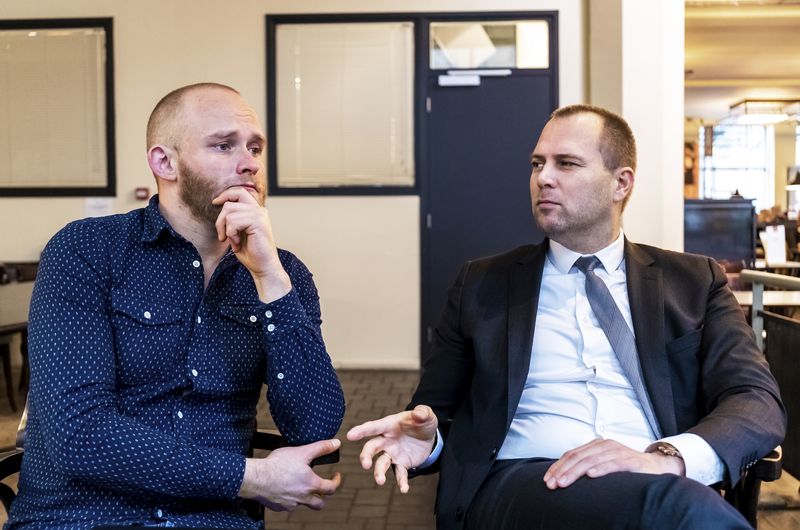
Image: Angeliek de Jonge
Heerema: "Perhaps one of the mistakes in the past was that we assumed that schools can always handle that freedom of spending."
The VVD is also increasingly critical of the lump sum. Heerema: “I notice that I am more reserved than my predecessors about the absolute freedom of spending in education. I think freedom is fantastic, but if you can also deal with it. And perhaps one of the mistakes in the past has been that we assumed that schools can always deal well with that spending freedom. ”
The Hague is also frustrated that money is unnecessarily left on the shelf in partnerships and school boards. Nevertheless, the VVD always voted against proposals from the opposition to put a stop to those reserves. Minister Slob is now having the inspectorate investigate whether limits can be introduced to address notorious potters. “I'm not immediately negative about that,” says Heerema.
That sounds economical.
Heerema laughs: "Yes, I also have a fraction of 32 fellow VVD members."
Doesn't your party think that education money should be used effectively?
Heerema: “Yes, if too much is left on the shelf, it is a waste of money. I think it is very strange that money remains with the partnerships and that at the same time we receive hundreds of e-mails from parents who are confused because students do not receive the support they need. ”
Stimulus
Appropriate education has become a very tough dossier and it cannot be seen in isolation from other hot topics: the teacher shortage, the workload and the freedom to spend in the lump sum. Every study again shows that suitable education is a problem on all sides, in both regular and special education. Teachers often indicate that they cannot give students the attention they deserve.
“Teachers go through walls for students,” says Kwint. “I also think that pupils stay in mainstream education longer than is good for them, and that they end up in special education worse than necessary. When I speak to special education teachers, they all say, My class has become so much more complicated than it was five years ago. And they all have examples of students who had to box two or three years above their ability in regular education and who end up burnt out in the SO. ”
Kwint: "When I speak to teachers in special education, they all say: my group has become so much more complicated than it was five years ago."
The regional redistribution of support budgets (in policy jargon: financial equalization) is a perverse incentive, says Kwint. “Look at partnerships that have to cut costs. The number of referrals to special education is decreasing there, and there you go: pupils have to get by with a little extra guidance at a regular primary school. The flow of funding is leading and not what a student needs. And I find that terrible for this target group. ”
Heerema: “I share the analysis that some children are kept in regular education for too long. These kids get stuck, go to special education frustrated and then you have to fix what has been broken. A pupil has to go to the most suitable school and that is not always regular education. ”
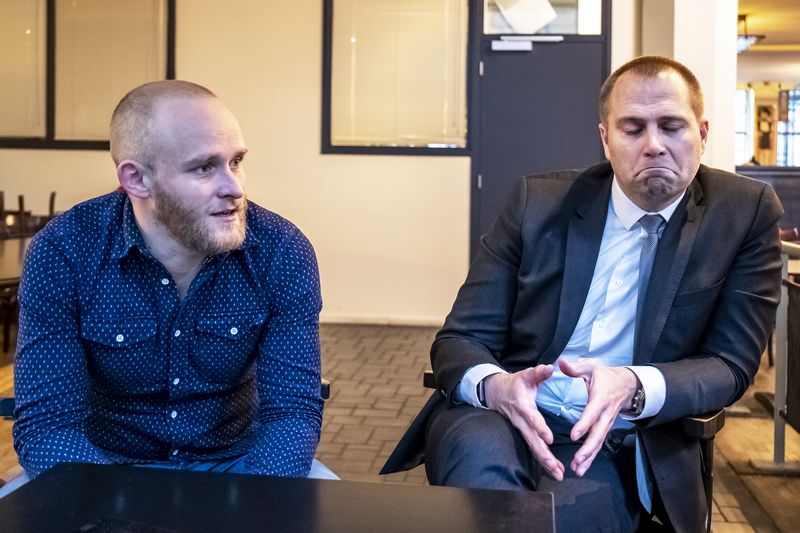
Image: Angeliek de Jonge
Heerema: "I see that appropriate education simply does not work in practice. Then you can do two things: stick to the system and fine-tune it a bit, or review the basics because the system does not offer enough in practice. I am increasingly in the state that we have to do the latter.”
The VVD was at the helm of the introduction of appropriate education, Heerema acknowledges. “This is also one of the subjects that I am a lot more critical about than the VVD has been in previous years. I see it just doesn't work in practice. It may be very good on paper. If you see in practice that only some of the children have been helped, that there is also a large group of children for whom no offer can be arranged, that the number of people sitting at home is not or hardly decreasing, then something is going wrong. And then you can do two things: stick to the system and polish a bit, or rethink the basics because the system doesn't offer enough in practice. I am increasingly in the position that we should do the latter. I think you will notice that in the debates too, Peter. ”
Kwint: “Yes, absolutely. These are problems that we see now, regardless of your political affiliation. When I hear the minister say that we won't get a final evaluation until 2020, I think: fucking hell. That's really not possible, it's about children. ”
No chance
Parents who fear that their child will be in trouble, increasingly seek guidance outside the school. That is to say: if the wallet allows it. A creeping privatization threatens to exacerbate the inequality of opportunity.
Take the voluntary parental contribution, which has increased by tens of percent in recent years. This means that children of parents who cannot afford the contribution are sometimes excluded from celebrations or outings. In addition, there are schools that reduce the classes of a high parental contribution, something that is formally not allowed. The SP, together with GroenLinks, has drawn up a bill to make the former, the exclusion of extracurricular activities, a criminal offense. However, contrary to what the petitioners would prefer, the text does not contain a cap to limit voluntary parental contribution. That too is political pragmatism, because that would mean that the law would have no chance in advance. The SP and GroenLinks see the initiative as a first step.
Heerema, who has not yet read the proposal, responds: “I think it is very bad if schools would use the voluntary parental contribution to exclude children, such as for a Christmas dinner or a school trip. But my mailbox is not overflowing with parents who say: my daughter is not allowed to come because of the voluntary parental contribution. ”
Perhaps because the VVD has supporters who can more easily pay a higher parental contribution?
Heerema: “Could be, I only indicate what my frame of reference is. I do not get any signals that it is very common. If other parties pretend that this is the case, I see it as a political frame. I just don't hear much about it. ”
Kwint: "You are not telling me that a parental contribution of 900 euros per year has no influence on a student's chances. If it did not make any difference, it would be a waste of money from the parents."
Kwint: “There are not thousands of emails, no, but I do get those signals. The point is that we find this undesirable. And as far as equal opportunities are concerned, you cannot tell me that a parental contribution of 900 euros per year has no influence on the chances of a student. If it didn't make any difference, it would be wasted money from the parents. ”
Unlike Kwint, Heerema sees no relationship between the parental contribution and inequality of opportunity. “I think parents should be able to choose a school that offers something extra, whether it is bilingual education or other things that allow you to distinguish yourself. I think that is the right of schools to do. And yes, sometimes you have to pay a little extra for that. ”
This article can be found in the February issue of the Education Magazine, which will be published on Tuesday 2 February. AObmembers receive the Education Magazine every month.
